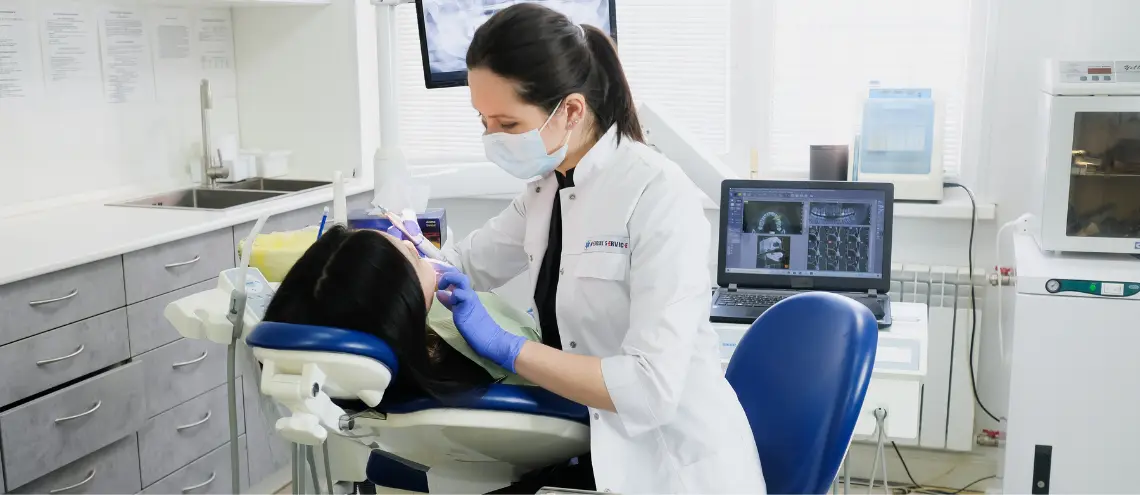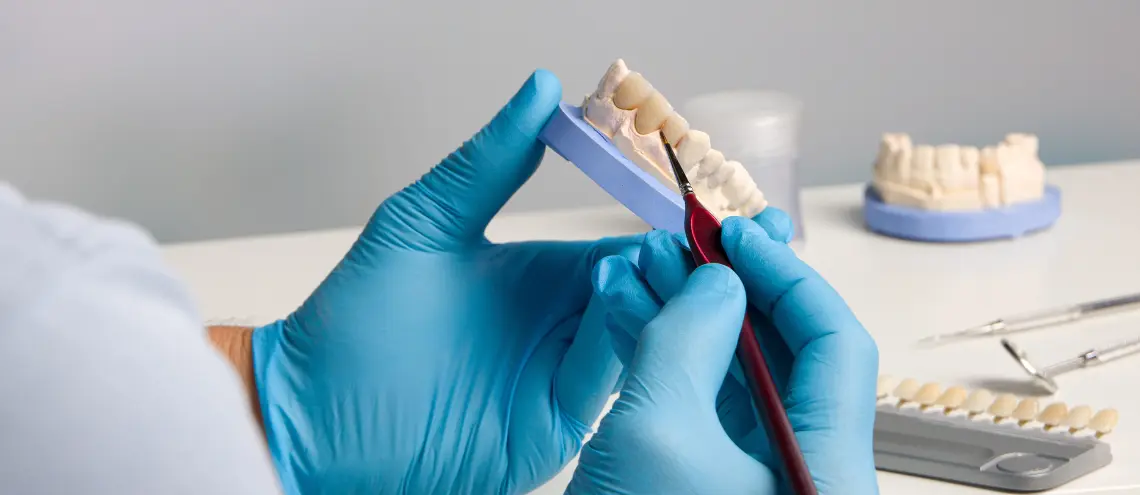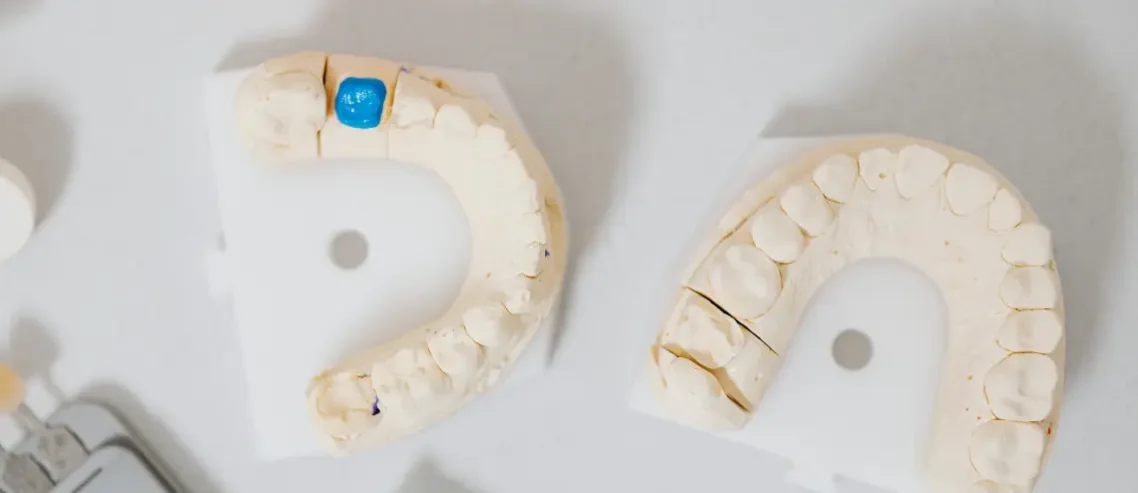How to Get Emergency Crown Treatment in Thailand
You may need crown treatment if you have had an accident or an injury that damaged your teeth. Consider contacting a dental care provider immediately to get your teeth assessed. Your dentist can then prepare your tooth for crown treatment and advise you on your available crown options if needed.
Thailand is known for quality dental care that balances quality and affordability. In this partnered article with BIDC, we will explore how you can get emergency crown treatment in Thailand, what will happen during your visit, and your treatment options.
When You Might Need a Dental Crown in Thailand

You might need dental crown treatment if you experience an accident, an injury, or unexpected trauma that leads to a cracked or broken tooth. A dental crown can restore the function and aesthetics of the tooth under such circumstances.
If you experience severe pain, swelling, or noticeable damage to your tooth following an accident or an injury, seek emergency dental care immediately.
The damaged teeth may not only affect your smile but can also compromise your oral health. Cracked or broken teeth are more susceptible to bacterial invasion, which can lead to infections or further deterioration.
Restoring a damaged tooth promptly helps maintain oral function, prevent discomfort, and support long-term dental health.
Studies have shown a strong link between oral health and overall well-being. Neglecting dental issues can contribute to systemic conditions such as cardiovascular disease.
Therefore, addressing damaged teeth with appropriate restorative treatments, such as crowns, is essential for maintaining both oral and general health.
What is a Dental Crown and How it is Done

A dental crown is a cap placed over a damaged tooth to restore its shape, size, and strength. Crowns are commonly made from materials like porcelain, ceramic, or metal alloys. The choice of material typically depends on the location of the tooth, aesthetics, and budget considerations.
Your dental crown treatment visit will usually follow the processes of:
- Initial consultation
- Dental Impression
- Crown placement
Initial Consultation
Upon your initial consultation, your dentist will first remove the decayed or damaged tooth structure. If the tooth has been severely damaged or has lost too much of its structure, your dentist will rebuild the tooth with a pin and/or composite bonding called a core buildup.
Dental Impression
After preparing the tooth, your dentist will create a mold by taking impressions of your teeth. This is usually done by a digital scan. The mold will be sent to a dental lab, where they will use the mold to construct the crown.
Crown Placement
Once the crown is ready, your dentist will place the crown over your existing tooth and secure it over your tooth with glue. Your dentist will then check if your teeth can bite and function properly after the placement.
Types of Dental Crown Treatment

When undergoing a crown treatment, you can choose between one-day, two-day, or conventional crown treatment. All will follow the same basic steps, but they will differ in the length of time and the materials that are used for the crown.
Conventional Crown Treatment
Conventional crown treatment typically requires two to three visits and can take around a week to complete.
Lab technicians will use machines to construct, mill, and bake the tooth crown before performing a hand-crafted layering technique to make the crown look more natural and translucent.
The perk of the conventional crown treatment is that you can choose stronger types of ceramics as the material for your crown.
One-Day and Two-Day Crown Treatment
One-day and two-day crown treatments use standardized ceramics made by automated digital CAD/CAM (computer-aided design and manufacturing) technologies to create your crown. This means the dentist can complete your treatment within one or two treatments over a shorter period of time.
How to Choose a Dental Clinic for Your Crown Replacement in Thailand
When choosing a dental clinic in Thailand, especially for an emergency crown treatment, make sure you have reviewed the accreditation of the facility’s standards as well as your dentist’s qualifications.
A proper accreditation means the clinic has undergone verifications for their standards and that they have been audited by an external third party for their safety and quality.
Some examples of dental clinics’ accreditation that you can look for when considering a facility for your crown treatment are such as:
- Joint Commission International (JCI) – a US-based accreditation body that looks at healthcare organizations’ treatment and healthcare systems
- International Standard Organization (ISO) – an international standard development organization that looks at an organization’s quality management system
On top of the facility’s accreditation, you should also look at your dentist’s qualifications and specialization.
Most clinics will provide a list of their dentists and their specialties on their websites. This will not only ensure that you are receiving quality care but also that you’re being cared for by an expert in the field!
Thailand has many top-rated, reputable clinics known for their quality and affordability.
By reviewing the qualifications of your preferred facility and dentist, on top of the types of crowns you need and the facility’s offered services, you can rest assured that you have chosen a provider whose standards meet international benchmarks.
You can also consult our Expat’s Guide to Dental Care and Insurance in Thailand for more information!
Make Sure Your Dental Health is Covered in Thailand
More often than not, dental health can fall through a coverage gap in your health insurance plans, but it doesn’t have to. Expert insurance advisors at Pacific Prime Thailand are ready to assist you in finding the right individual health insurance plans that will ensure your dental health is taken care of.
Contact us now for a free, no-obligation quote and plan comparison!
About Bangkok International Dental Center (BIDC)
Bangkok International Dental Center (BIDC) is a Joint Commission International accredited dental clinic in Thailand under Dental Corporation Public Company Limited. BIDC provides a full range of dental services, from primary dental checkups to full-fledged dental implants, oral surgery, teeth whitening and esthetic dentistry services. Expats can avail themselves of world-class dental care, multilingual services, and state-of-the-art facilities.
Partnered Content
- AXA Thailand: Health Insurance for Expats Living in Thailand - July 23, 2025
- How to Get Emergency Crown Treatment in Thailand - July 1, 2025
- Leptospirosis in Thailand - March 27, 2025





Comments
Comments for this post are closed.
We'll notify you
when our team replies!